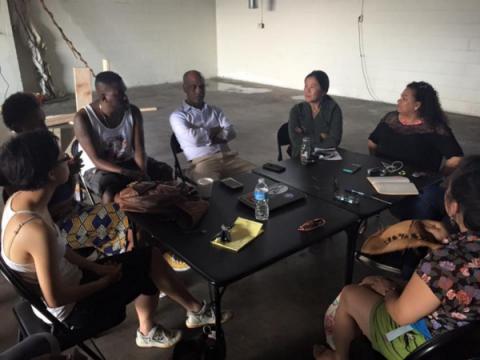Lately, the public discourse around immigrants in the United States has turned decisively negative. From anti-Muslim sentiments to outlandish accusations about the Latino community, immigrants in this country have felt and continue to feel under attack. As an Ethiopian refugee who immigrated to the United States as a teenager and an immigrant from the Philippines who came to this country at 15 years old, we consider these attacks personal.
We both know all too well what it means to struggle. Like many young immigrants, we worked hard in high school and college to better ourselves. Now, we serve as the first African refugee to serve as the Executive Vice President of the AFL-CIO and the National President of the Asian Pacific American Labor Alliance (APALA). The labor movement opened up a path to the middle class by providing us and our families with good- jobs that provided secure benefits and the opportunity to retire with dignity.
Unfortunately over the last few years, we have watched as that path to the middle class eroded as our communities were devastated by mass incarceration, low-paying jobs that lead nowhere and broken immigration policies. The prison population for Asian Americans and Pacific Islanders has been increasing steadily, jumping a shocking 30% from 1999 to 2004 alone. The connection between mass incarceration and mass deportations is not lost on us. We understand that the broken prison system is linked to the conditions in detention centers and the overall mass criminalization of communities of color.
The labor movement is a movement of second chances and firmly believes the criminal justice system in the United States needs to offer people another chance to contribute to and be full members of our society. After watching our immigrant families and friends endure so many hardships as they struggled to find work and create a new life for themselves, we both knew we had to help others gain access to stable, well-paying jobs that could sustain themselves and their families.
Together with our allies, the AFL-CIO and APALA supported legislation like Prop 47 in California that reduced sentencing for nonviolent crimes. We are using grassroots organizing in the states to pass ban the box legislation on the local level which would make it illegal for a potential employer to ask about a job applicant’s criminal background. We are fighting back against corporate interests and fighting to organize working people into unions, specifically working people in the South where there is a deep legacy of exploitation of labor from people of color. Only by joining together collectively can working people demand better jobs and wages and create the foundation of a better life.
But our fight doesn’t end there. We need to elect candidates at both the federal and the local level who support policies that support our communities. Policies that bring an end to the over criminalization of people of color and policies that reform the immigration system so families are no longer ripped apart.
Labor is in this fight. Immigrant rights are worker rights. Worker rights are civil rights. This is a fight for all working families, regardless of race, religion, country of birth or any other self or perceived identity. We’re on the ground and we are ready to fight to ensure immigrant working people have access to the American dream.
Tefere Gebre is the Executive Vice President of the AFL-CIO. Johanna Hester is the National President of the Asian Pacific American Labor Alliance (APALA).
To learn more about APALA & Asian-Pacific American Heritage month, click here.


Spread the word